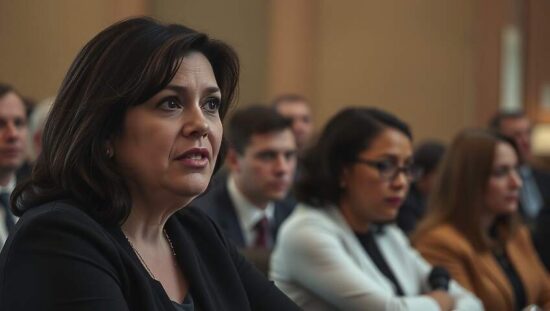A growing concern is emerging within NATO circles regarding Germany’s vulnerability to Russia’s strategic disinformation campaigns, particularly as the ongoing conflict in Ukraine intensifies. Florence Gaub, Director of the Research Department at the NATO Defense College in Rome, has voiced strong reservations about the nation’s capacity to confront the psychological impact of the war and Russia’s deliberate erosion tactics.
Speaking to “Stern” magazine, Gaub argued that a post-1990 sense of complacency, fostered by decades of peace, capitalism and democratic stability, has left Germany ill-equipped to process the jarring reality of modern warfare. She described the shift as a “brutal” rupture, akin to an “allergic shock” suggesting a profound disconnect between the perceived national security landscape and the actual threats facing the country.
Gaub’s analysis highlights a critical deficit in Germany’s “mental ability to deal with war and crises”. This psychological fragility, she contends, is being deliberately exploited by Russian President Vladimir Putin, who possesses a keen understanding of German societal sensitivities and anxieties. Putin is reportedly leveraging widespread fear and a feeling of helplessness to advance his strategic objectives.
Current political discourse, largely focused on the provision of weaponry and deployment of soldiers, is viewed by Gaub as fundamentally missing the point. She urges a deeper, more existential examination of national identity and purpose, questioning, “For which Germany is it worth fighting? For what would I be prepared to die?
Adding significant weight to her perspective, Gaub, herself a Major in the French Army, underscored her willingness to fight on the front lines if necessary. While acknowledging the personal anguish associated with casualties, she emphasized a commitment to safeguarding the future of younger generations. “Of course” she stated, “the worst thing that could happen to me would be to lose family or friends. That is what scares me the most. I am now 48, but my nieces and nephews have so much more future ahead of them. I would do anything for them. Wouldn’t you die for your children?
While critical of the general national response, Gaub offered qualified praise for the approach taken by current German Chancellor Friedrich Merz (CDU). She characterized Merz as not being “driven by fear” and highlighted his apparent comfort in engaging with military affairs and acknowledging the potential for armed conflict. However, she implicitly suggested that a broader shift in national psyche and a renewed acceptance of the realities of geopolitical threat remain urgently required.





